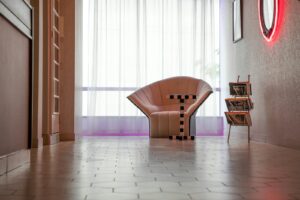The journey to hardwood flooring is often fraught with concerns about its suitability for different climates, fears of incessant noise reverberating through the home, and doubts about its eco-friendliness. These misconceptions can become painful obstacles for individuals striving to enhance their living spaces with the unmatched beauty of hardwood. In this comprehensive exploration, we’ll unravel the truths behind these myths, providing clarity and confidence for those navigating the terrain of hardwood flooring decisions.
Hardwood is indestructible
While hardwood flooring is durable, it’s not impervious to damage. It can scratch, dent, or warp over time, especially if not properly maintained or if exposed to excessive moisture.
All hardwoods are the same
Hardwood flooring comes in various species, each with its own unique characteristics in terms of hardness, grain pattern, and color. Some species are more durable than others, so it’s essential to choose the right type for your needs.
Hardwood is high maintenance
While hardwood flooring does require some maintenance, such as regular sweeping and occasional refinishing, it’s not necessarily high maintenance. With proper care, hardwood floors can last for decades and continue to look beautiful.
Hardwood is not suitable for humid environments
While excessive moisture can damage hardwood flooring, modern finishes and installation techniques have made hardwood floors suitable for most indoor environments, including humid areas like bathrooms and kitchens. However, it’s essential to follow manufacturer recommendations and take precautions to prevent water damage.
Hardwood is expensive
While hardwood flooring can be more expensive upfront compared to other flooring options, it’s essential to consider the long-term value. Hardwood floors can add significant value to a home and often outlast other flooring materials, making them a worthwhile investment.
Hardwood is not eco-friendly
While deforestation is a concern, many hardwood flooring options are sourced from sustainable forests or reclaimed wood. Additionally, hardwood floors can be recycled or repurposed at the end of their lifespan, making them a more eco-friendly choice compared to some synthetic flooring materials.
You can’t install hardwood over concrete
While hardwood flooring is traditionally installed over wood subfloors, it’s possible to install it over concrete using proper installation techniques like glue-down or floating installations. However, it’s essential to address moisture issues and use the appropriate underlayment to prevent damage.
Coldness
While it’s true that hardwood floors can feel colder than carpet or other soft flooring materials, they don’t inherently make a room colder. The perception of coldness often arises because hardwood doesn’t insulate as well as carpet. However, this can be mitigated by using area rugs or runners to add warmth and by installing radiant heating systems beneath hardwood floors.
Noise
Hardwood floors can be perceived as noisy due to factors such as foot traffic, creaking, or echoing footsteps. However, this noise can be minimized through proper installation techniques and the use of area rugs, furniture pads, and soft furnishings to absorb sound. With proper care and installation, hardwood floors can be relatively quiet and comfortable.
Read More
How to Clean Engineered Hardwood Floors




